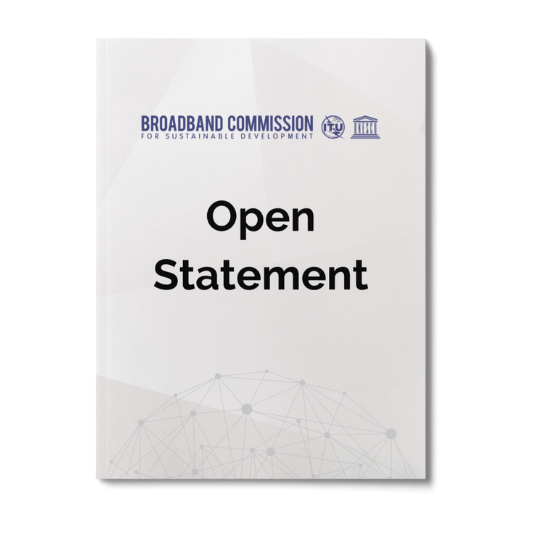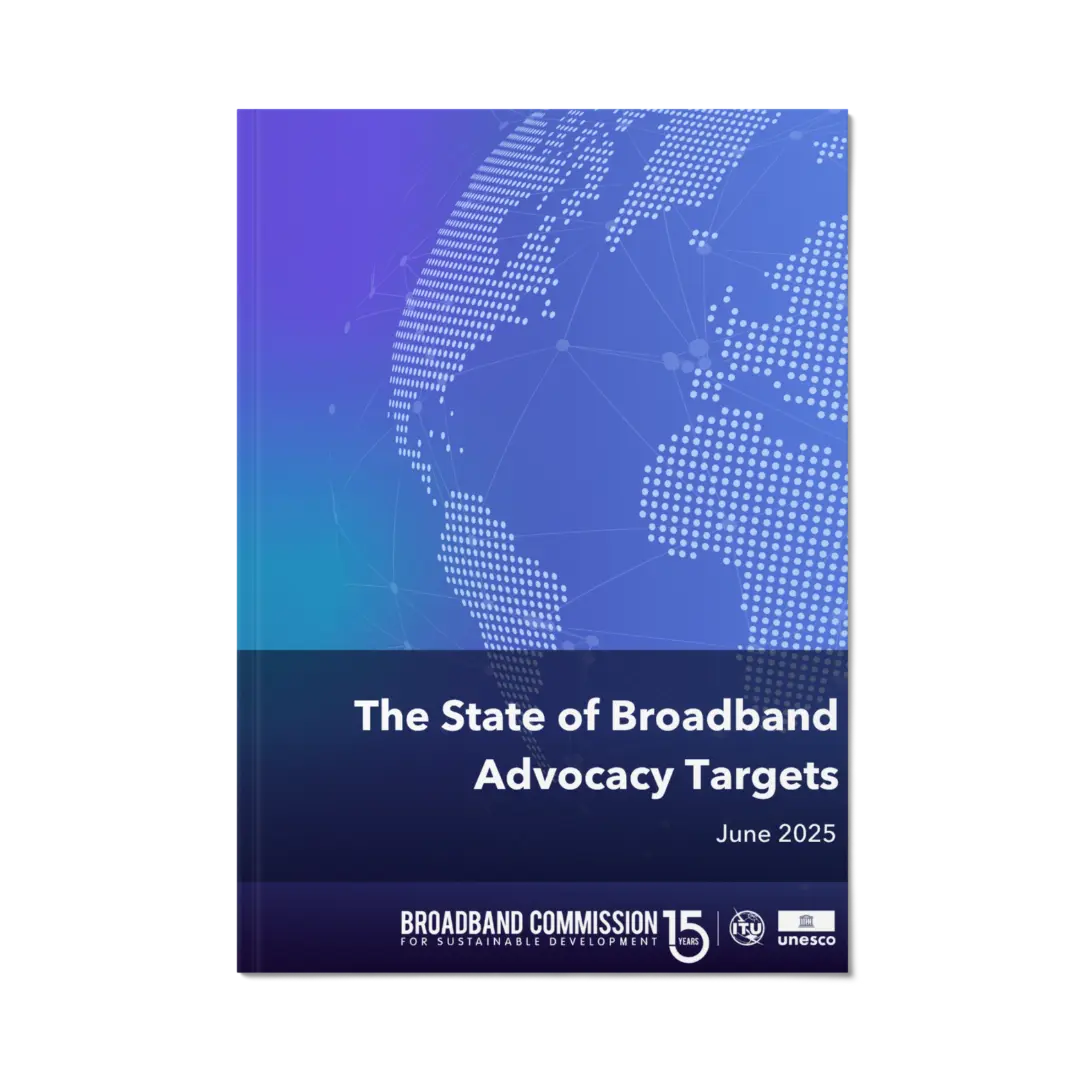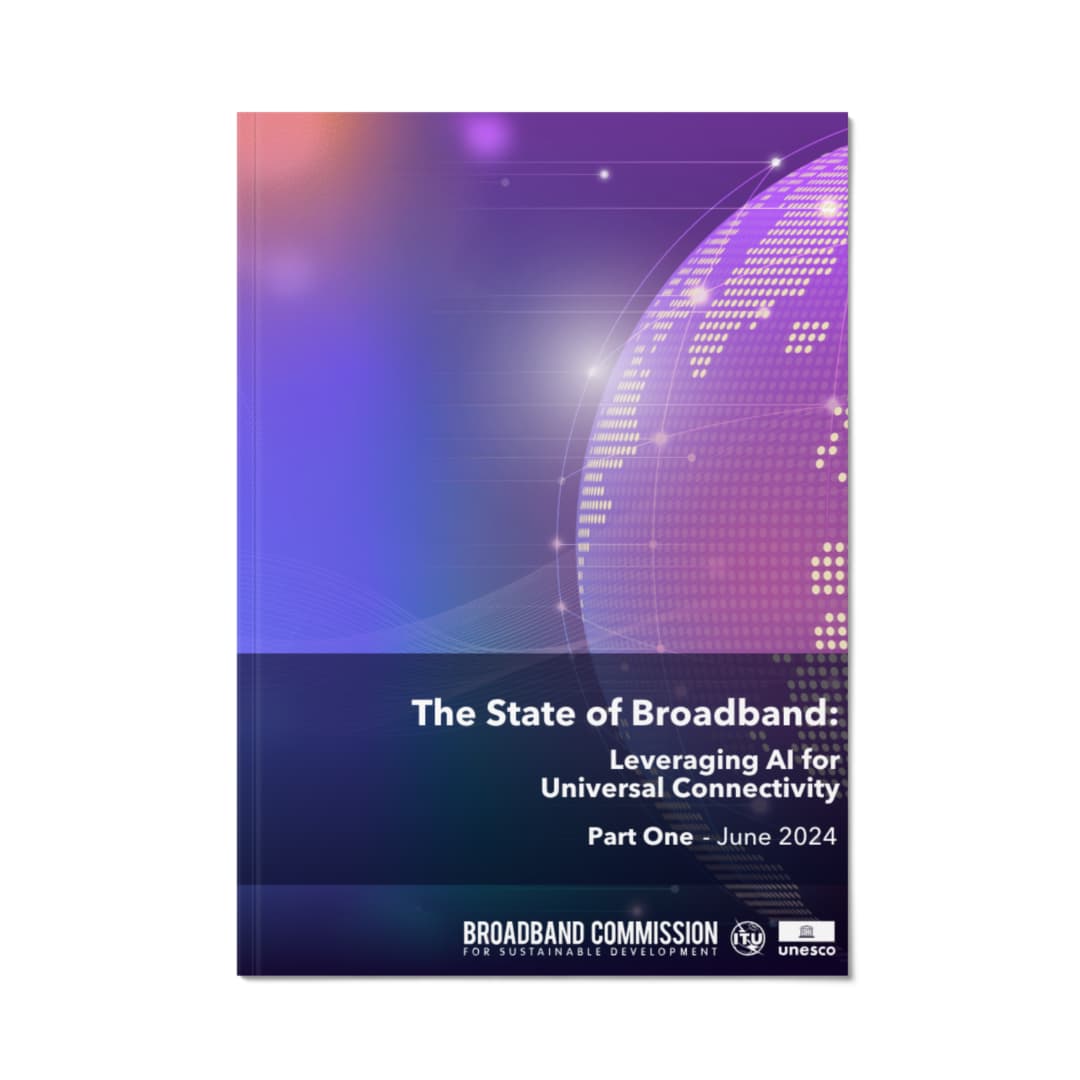The UN Broadband Commission for Sustainable Development addresses this Open Statement to country delegates at the World Humanitarian Summit 2016, aid and disaster relief agencies and workers, the international development community and the private sector:
We, the UN Broadband Commission for Sustainable Development1 , affirm our sincere conviction and belief in the critical role of broadband in empowering women and men, in transforming our societies and economies, and in achieving the Sustainable Development Goals (SDGs) agreed to by world leaders in September 2015. We urge delegates to the World Humanitarian Summit to acknowledge that humanitarian challenges can be more effectively addressed by fully harnessing Information and Communication Technologies (ICTs) to the benefit of all. This requires a global rollout of broadband infrastructure (including mobile and satellite), with relevant applications and services, and the right skills, to drive development and enhance humanitarian work around the world.
Information and Communication Technologies are vital enablers of the three pillars of sustainable development – economic development, social development and environmental protection. Governments must strive to connect the unconnected, and the upcoming generation of youth, as ICTs and e-skills are an engine of inclusion, economic growth and development. Furthermore, recent technological advances such as digital financial services, Big Data and the Internet of Things (IoT) are pushing humanitarian solutions forward, as we are able to predict, monitor and respond to crises in real-time, as well as provide assistance to the affected in a rapid and effective manner. For example, emergency alert solutions can deliver potentially life-saving messages to mobile subscribers in specified areas, warning of imminent disasters or other emergencies. Satellite services can and already are playing a vital role in enabling response and relief operations and longer-term developmental initiatives in disaster areas as well as in rural villages and connecting the unconnected.
Broadband networks, as well as effective planning for broadband network coverage in times of crises, can help predict, prepare for and respond to crises and natural disasters more rapidly and more effectively. ICT networks can help respond to shocks and coordinate disaster relief efforts and conflict management more efficiently and effectively. Early planning and effective capacity development builds the necessary skills and competencies, which will help create more resilient and robust infrastructure to prepare and mitigate the impact of disasters. In the context of public protection and disaster relief, public safety agencies are very reliant on networks, which need to be highly reliable and secure.
To this end, we urge all participants to make the most of the potential of ICTs as enablers for development; to enhance planning processes for broadband infrastructure, so ICTs and broadband can help improve and facilitate disaster response and prevention; and to develop capacities and relevant content ahead of time, especially for youth. Broadband technologies can help us make more effective and efficient use of the planet’s existing resources to ensure sustainable development and combat climate change and the growing risks and vulnerabilities of the world’s poorest people to natural disasters and external shocks.
Infrastructure is a necessary pre-condition for sustainable economic growth, but it is not sufficient. It is as important to promote, from the outset, investments in building capacities, in online multilingual local content and services, in media and information literacy development, without which infrastructure cannot be fully harnessed for development. Only a holistic approach will be able to address inequalities, deliver digital inclusion and share development knowledge with all. For global broadband roll-out to contribute most to development, people must be empowered to transform information into knowledge for lifelong learning and digital skills, thereby increasing opportunities for employment, reflecting multilingual representation and cultural diversity, for their own benefit, as well as that of their community.
The Broadband Commission recognizes that the world is facing humanitarian needs on a massive scale, and reaffirms its belief that broadband/ICTs have provided us with the tools to address key challenges in new and innovative ways, and which can improve the response time for millions of people affected by conflicts and disasters. Digital inclusion is of paramount importance to ensure that no one, and no society, is left behind. Let us grasp this vital opportunity to strive for a world where every citizen can potentially experience the opportunities and benefits provided through affordable access and connectivity to ICTs. We urge delegates at the World Humanitarian Summit to connect people in the world through broadband and fully use technologies for inclusive economic growth, social cohesion, digital inclusion, and the sustainable management of our natural resources.
Signed,
Members of the UN Broadband Commission for Sustainable Development
Istanbul, 23 May 2016





